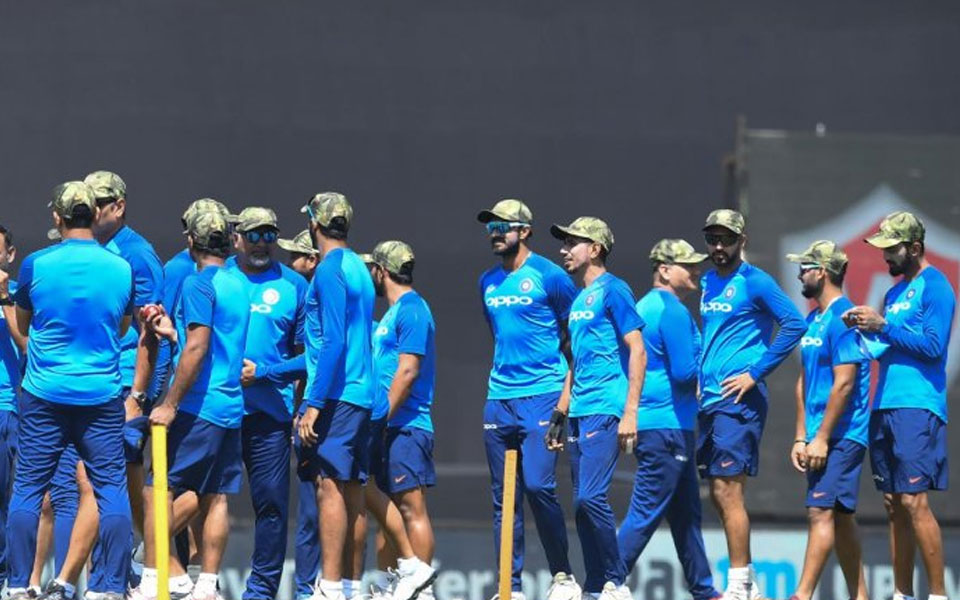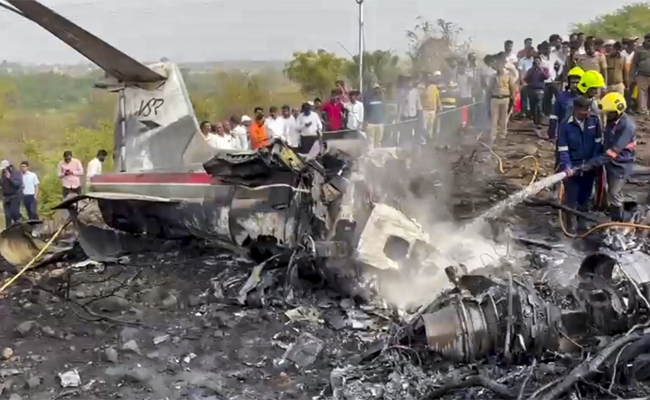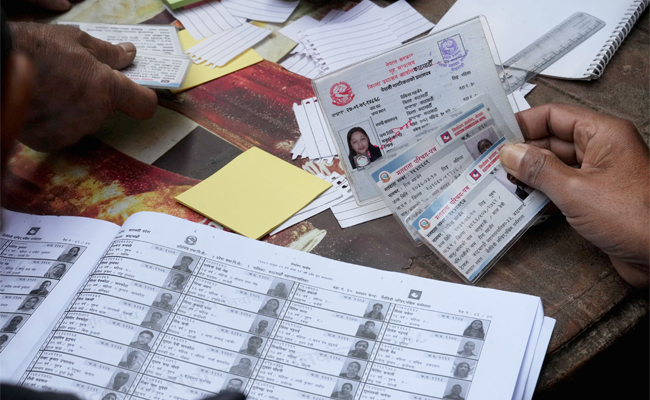Ranchi: As a mark of respect for the CRPF personnel who lost their lives in the Pulwama terrorist attack, the Indian cricketers Friday sported special Army caps during the third ODI against Australia and donated their match fee to the National Defence Fund.
Captain Virat Kohli came out for the toss wearing the camouflage military cap, which had the BCCI's logo on it. However, a top official of the Board made it clear that it was a one off gesture and rejected media reports that this could become an annual practice.
"The circumstances in this case are extraordinary, we don't have plans to make it an annual affair," the official said.
Kohli urged everyone to contribute towards the National Defence Fund so that the money could be used for the welfare of the families of the slain CRPF Personnel.
"This is a special cap, it's a tribute to the Armed forces. We're all donating our match fees of this game to the National Defence Fund. I urge everyone in the country to do the same, donate and stick to the families of our armed forces," Kohli said.
It is learnt that the idea for this tribute was floated by former skipper Mahendra Singh Dhoni, who holds the honorary rank of Lieutenant Colonel in the Territorial Army.
Dhoni handed the caps to his teammates and the Indian cricket board put out a video of it on micro-blogging site Twitter.
A playing XI member gets Rs 8 lakh as match fees per game in ODIs and the reserve players get half that amount.
At least 40 CRPF personnel were killed in the Pulwama attack, for which Pakistan-based terrorist outfit Jaish-e-Mohammed had claimed responsibility.
Earlier, the BCCI had decided to donate the entire budget of the IPL opening ceremony for the benefit of the families of those killed in the terrorist attack.
There will be no IPL opening ceremony this year.
#TeamIndia will be sporting camouflage caps today as mark of tribute to the loss of lives in Pulwama terror attack and the armed forces
— BCCI (@BCCI) March 8, 2019
And to encourage countrymen to donate to the National Defence Fund for taking care of the education of the dependents of the martyrs #JaiHind pic.twitter.com/fvFxHG20vi
Let the Truth be known. If you read VB and like VB, please be a VB Supporter and Help us deliver the Truth to one and all.
Pune (PTI): The Maharashtra Crime Investigation Department on Thursday questioned V K Singh, owner of VSR Ventures, which operated the aircraft involved in the Baramati crash that killed deputy chief minister Ajit Pawar, a CID officer said.
“The statement of V K Singh is being recorded,” said the CID officer, without disclosing more details about the questioning, which was still underway.
A Learjet 45 aircraft, operated by VSR Ventures, crashed near the Baramati air strip in Pune district on January 28, killing Pawar and four others.
After the plane crash, an accidental death report was registered at the Baramati Taluka police station, and the case was later transferred to the Pune CID. Earlier, the state agency had said that its focus was to ascertain if sabotage or criminal negligence led to the Baramati tragedy.
Days before V K Singh's questioning, the CID had sent a set of questions to VSR Ventures in connection with its investigation into the plane crash, according to a source.
NCP (SP) MLA Rohit Pawar had alleged on Wednesday that someone was trying to save VSR Ventures, and claimed that a preliminary probe by the Aircraft Accident Investigation Bureau (AAIB) vindicated the doubts earlier raised by him.
In its 22-page preliminary report on the air tragedy, the AAIB said the visibility at the time of the crash was below the required level. It also flagged fading marks on the runway and the presence of loose gravel on the runway surface.
A few days ago, Ajit Pawar’s son Jay Pawar had shared a purported video on social media alleging that V K Singh's son Rohit Singh was seen dozing off in the chief pilot’s seat during a flight, and demanded his immediate arrest.
He had also demanded that all aircraft of VSR Ventures be grounded till the inquiry into his father’s plane crash is completed.





